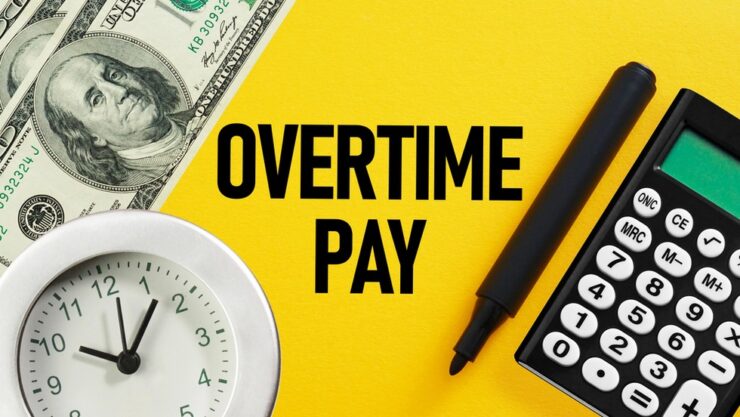Overtime pay laws are designed to ensure that employees receive fair compensation for the extra hours they dedicate to their jobs. Yet, many workers in San Diego find themselves underpaid, misclassified, or uncertain about their rights under California and federal law.
Understanding how overtime works, and how a qualified overtime lawyer in San Diego can help, is crucial to protecting your livelihood.
What Is Overtime Pay?

Overtime pay refers to additional wages earned by employees who work more than a standard number of hours in a given period. Under California Labor Code Section 510, most employees are entitled to:
- 1.5 times their regular rate of pay for hours worked beyond eight in a single day or 40 in a week.
- Double pay for hours worked beyond 12 in a single day or more than eight on the seventh consecutive day in a workweek.
Unlike federal law, which only requires overtime after 40 hours in a week, California law provides broader protections, making it one of the most employee-friendly jurisdictions in the country.
Common Overtime Violations in San Diego Workplaces
Despite clear legal standards, overtime violations remain widespread. These infractions often occur in subtle or complex ways that may not be immediately obvious to workers. Common violations include:
1. Employee Misclassification
Some employers label workers as “exempt” or “independent contractors” to avoid paying overtime. However, a job title alone does not determine exemption status. The duties performed and level of pay must meet strict criteria under California’s Division of Labor Standards Enforcement (DLSE) guidelines.
2. Off-the-Clock Work
Employers may expect employees to complete tasks before clocking in or after clocking out such as setting up equipment, responding to emails, or attending meetings. These hours count as work time and must be compensated.
3. Incorrect Calculation of Overtime Rates

Bonuses, commissions, and shift differentials must be included when calculating overtime rates. Failing to factor these components can lead to underpayment.
4. Denial of Meal or Rest Breaks
California law mandates specific rest and meal periods. When employees are forced to work through breaks, those missed breaks can trigger additional pay or penalties.
How a San Diego Overtime Lawyer Can Help
Employees may hesitate to challenge wage violations, fearing retaliation or confusion about their legal rights. This is where an experienced San Diego overtime lawyer becomes invaluable. Their role extends beyond filing claims, they serve as advocates, investigators, and negotiators to ensure fair compensation.
Evaluating Your Employment Classification
A lawyer can assess whether you’ve been correctly classified as exempt or nonexempt. Misclassification is common in industries such as hospitality, sales, healthcare, and technology.
Gathering Evidence of Unpaid Wages
To pursue a claim, documentation is critical. Attorneys help gather work schedules, pay stubs, emails, and witness statements to build a clear timeline of hours worked and payments owed.
Negotiating or Filing a Claim
Depending on the case, a lawyer may negotiate directly with the employer or file a formal complaint with the California Labor Commissioner’s Office. In some cases, litigation in civil court may be necessary to recover unpaid wages and potential penalties.
Protecting Against Retaliation
California law prohibits employers from retaliating against workers who assert their rights. If you face termination, demotion, or other adverse actions for raising concerns, an overtime lawyer can pursue additional remedies under Labor Code Section 98.6.
State and Federal Overtime Laws: A Dual Protection System

Both state and federal laws govern overtime, but California’s provisions generally offer greater protection. The Fair Labor Standards Act (FLSA) sets the national baseline, while the California Labor Code enhances these standards with additional rights.
For instance:
- California’s daily overtime rule goes beyond the FLSA’s weekly threshold.
- The state’s laws impose stricter penalties for willful nonpayment.
- Employers must maintain accurate time records, failure to do so can strengthen an employee’s claim.
Industries Most Affected by Overtime Issues
Certain sectors in San Diego are particularly prone to overtime violations:
- Hospitality and Food Service: Restaurant staff and hotel employees often work long shifts that go unrecorded.
- Healthcare: Nurses and medical technicians frequently face scheduling challenges that result in unpaid overtime.
- Retail: Sales associates may be expected to complete closing tasks off the clock.Technology and Startups: Salaried employees are sometimes mislabeled as exempt despite performing non-executive duties.
A knowledgeable overtime lawyer in San Diego understands the nuances of each industry and can identify whether wage practices comply with the law.
Calculating What You May Be Owed
Determining the correct amount of unpaid overtime involves more than simple arithmetic. California law requires that all forms of compensation such as hourly pay, commissions, and nondiscretionary bonuses be included when calculating your “regular rate of pay.”
For example:
- If you earn $20/hour and receive a $100 weekly performance bonus, your regular rate exceeds $20/hour for that week.
- Overtime would then be 1.5 times the adjusted rate, not the base rate.
Even small miscalculations over months or years can amount to substantial losses for employees.
The Importance of Acting Promptly

Wage claims are subject to statutes of limitations. In California, employees typically have:
- Three years to recover unpaid wages.
- Four years if the employer’s violation also breaches a written contract.
Delays in taking action can make it harder to collect evidence or recover the full amount owed. Consulting a legal professional early helps preserve your rights and strengthen your claim.
Conclusion: Ensuring Fair Pay Through Legal Protection
Every employee deserves fair pay for their labor. California’s overtime laws exist to safeguard workers from exploitation, yet enforcement often requires awareness and action. A San Diego overtime lawyer can help bridge the gap between legal protections and practical results, ensuring employers comply with their obligations and employees receive the compensation they have rightfully earned.
By learning how overtime laws work and recognizing potential violations, workers in San Diego can take confident steps toward financial fairness and workplace justice.

